Imagine completing a four-year degree, filled with knowledge and excitement to enter the tech world, only to find that many employers are hiring based on certifications, not degrees. On the flip side, someone with up-to-date tech certifications is landing job offers quickly. The debate between tech certifications and traditional degrees has never been hotter, with both paths offering unique advantages.
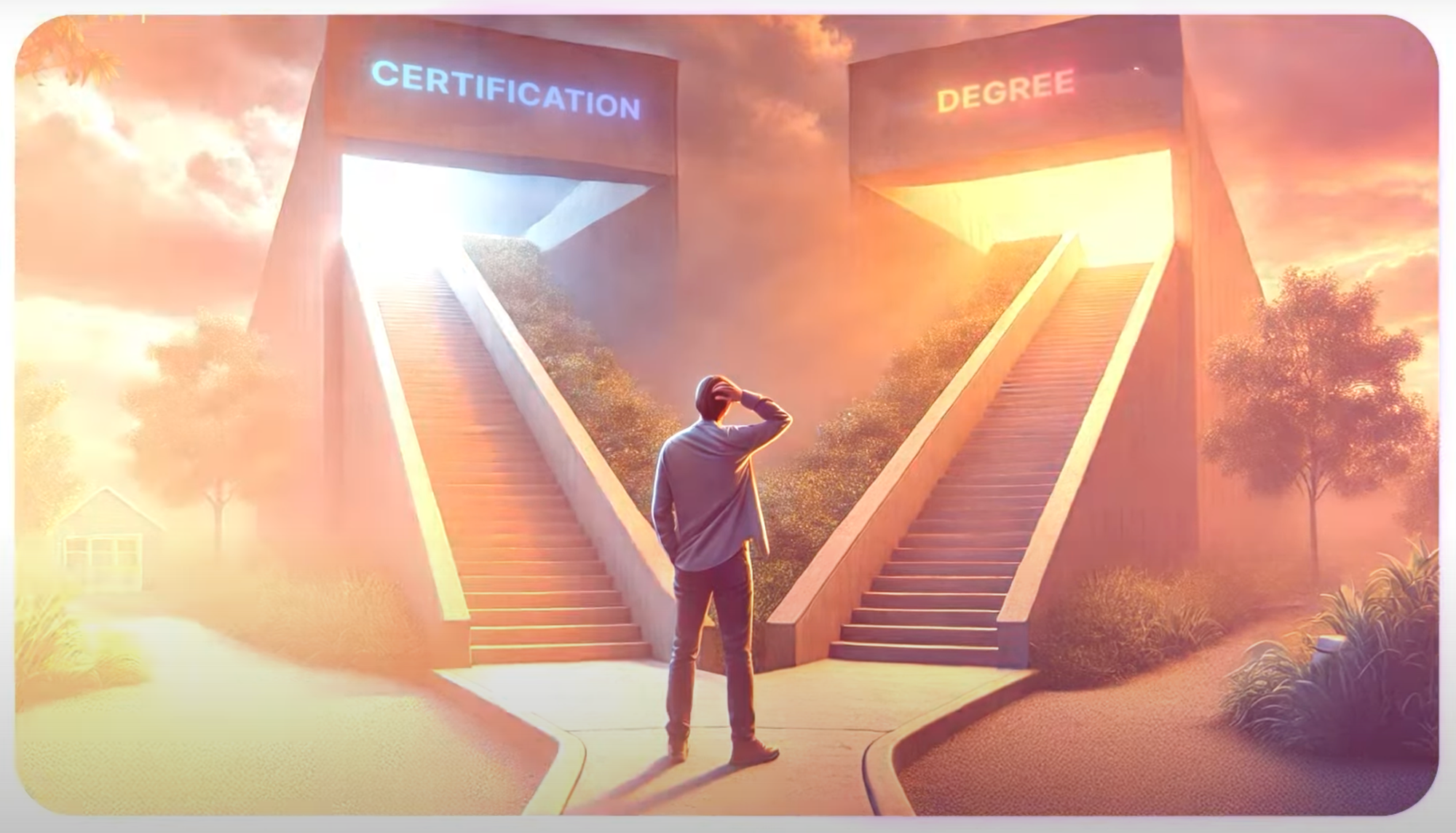
Drawing insights from the 2024 State of Tech Talent Report by The Linux Foundation, we’ll explore how certifications are increasingly valued in the industry. But this isn’t about taking sides—it’s about understanding the evolving landscape. Are certifications really outshining degrees, or is there room for both in tech? Let’s dive into the data and find out.

If you're interested in watching the KodeKloud YouTube video on this topic, check it out here.
1. Fast-Track to Relevance: Why Certifications Speak the Language of Today’s Employers
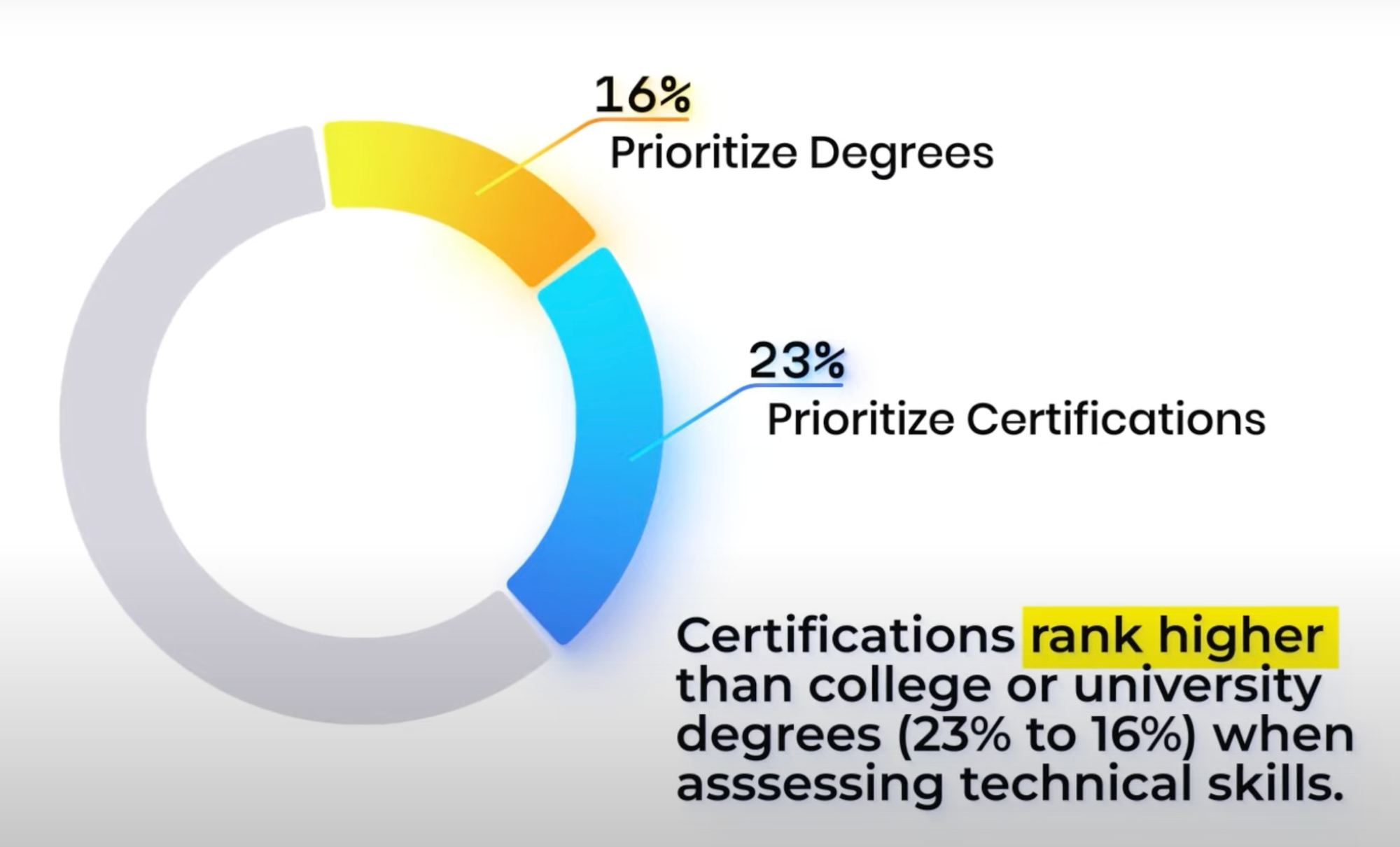
In the fast-evolving tech industry, time is money. Employers want candidates who can hit the ground running with relevant skills. According to the 2024 State of Tech Talent Report, 23% of employers prioritize certifications over degrees, compared to just 16% who still view degrees as more important. This shift reflects how certifications provide an accelerated pathway to gain job-ready skills that meet current industry demands.
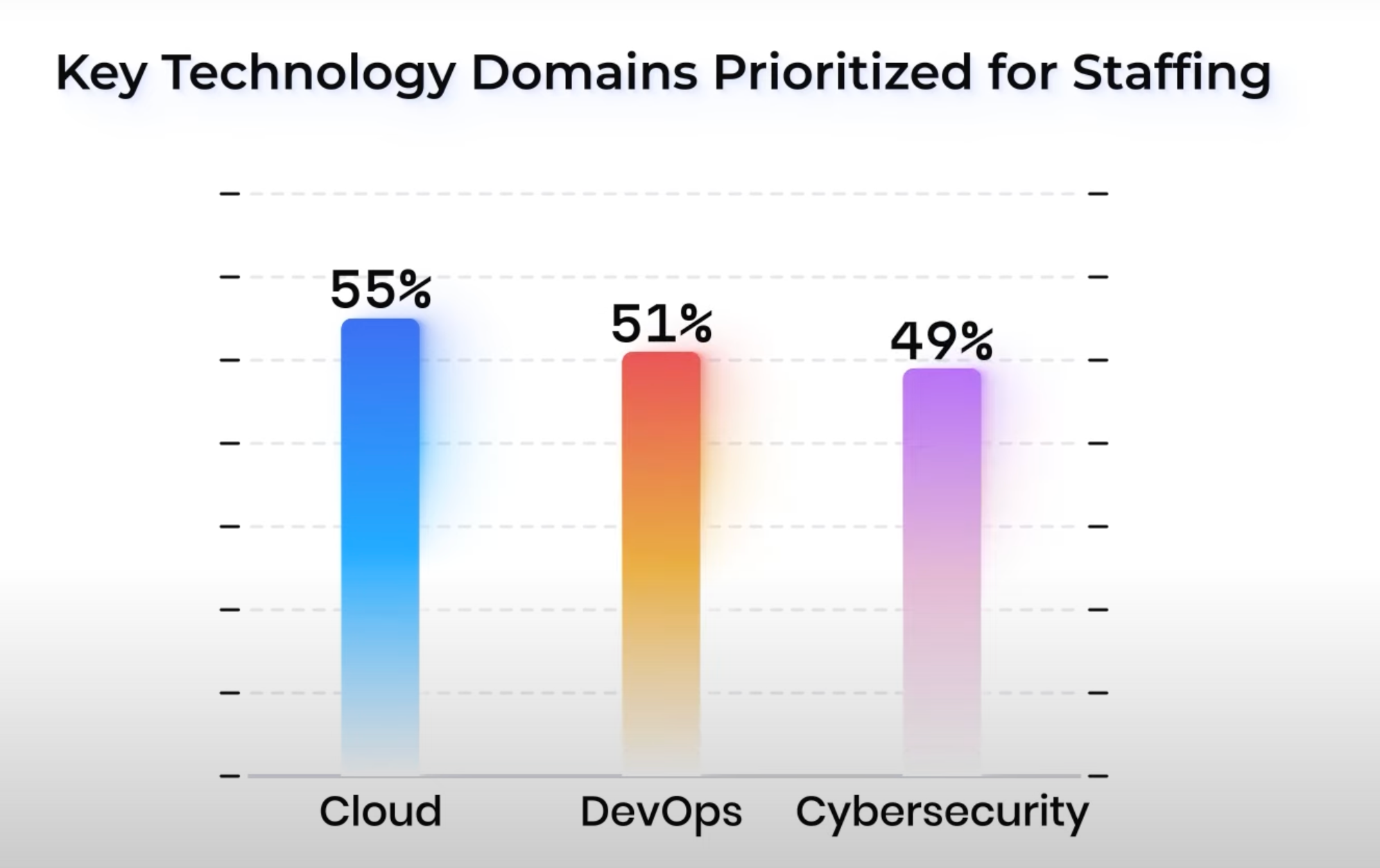
Practical skills trump theory—this seems to be the message coming from today’s tech hiring managers. Certifications are specifically designed to hone in on real-world tools, platforms, and challenges. In areas like cloud computing (a priority for 55% of companies), DevOps (51%), and cybersecurity (49%), certifications keep professionals up to speed with the latest advancements.
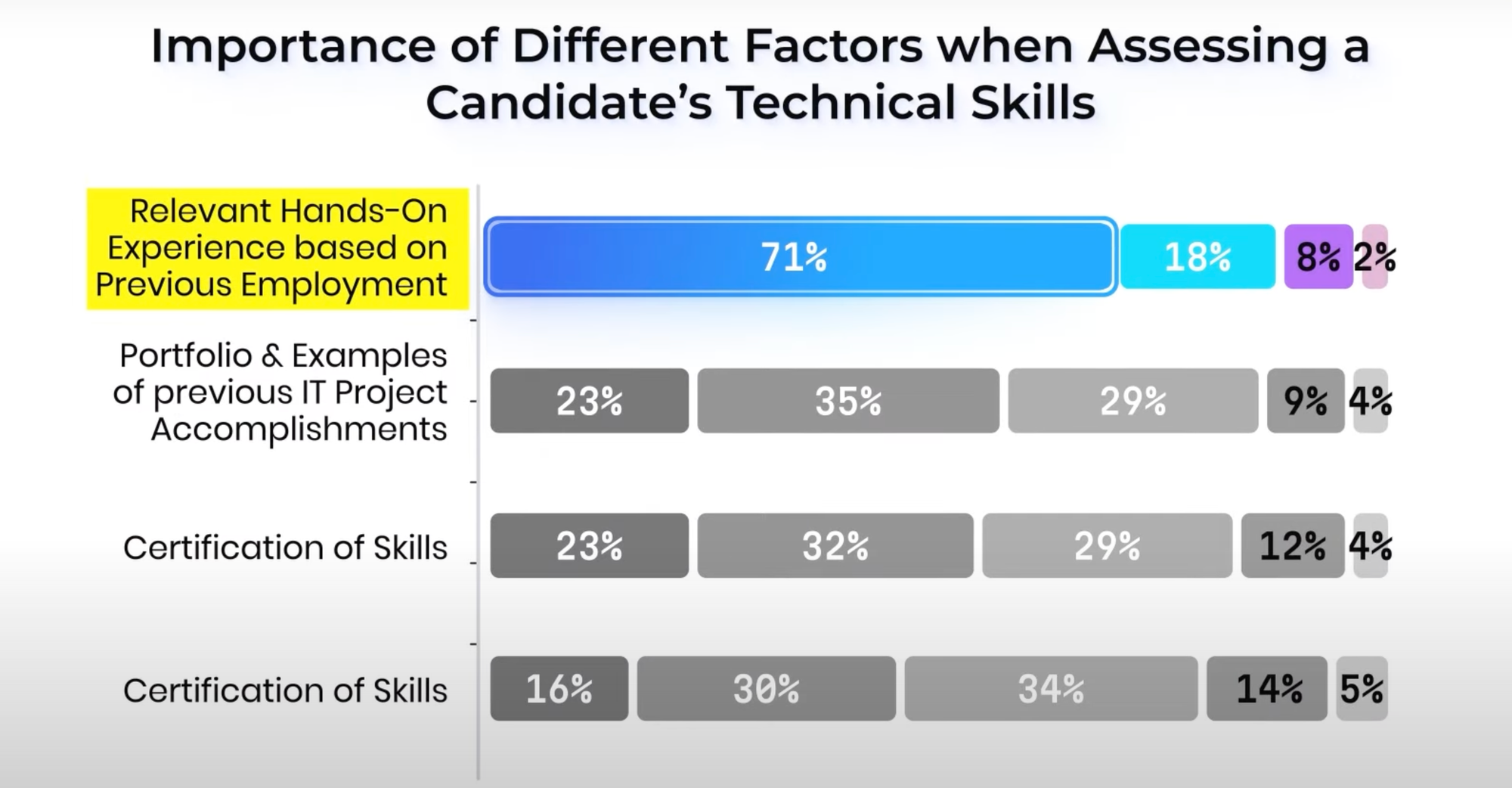
While degrees may take years to complete, certifications deliver timely updates and practical application, making them more agile in matching market needs. 71% of employers rate hands-on experience as "extremely important" when assessing candidates, and certifications are structured to test and prove that exact skill set.
2. Degrees: A Foundation, But Are They Losing Their Luster?
It’s important to recognize that degrees still hold value, especially in building foundational knowledge and broad problem-solving skills. For many, a degree is a gateway to critical thinking and a comprehensive understanding of various technologies. However, in a rapidly changing industry, degrees can struggle to keep pace with the latest developments.
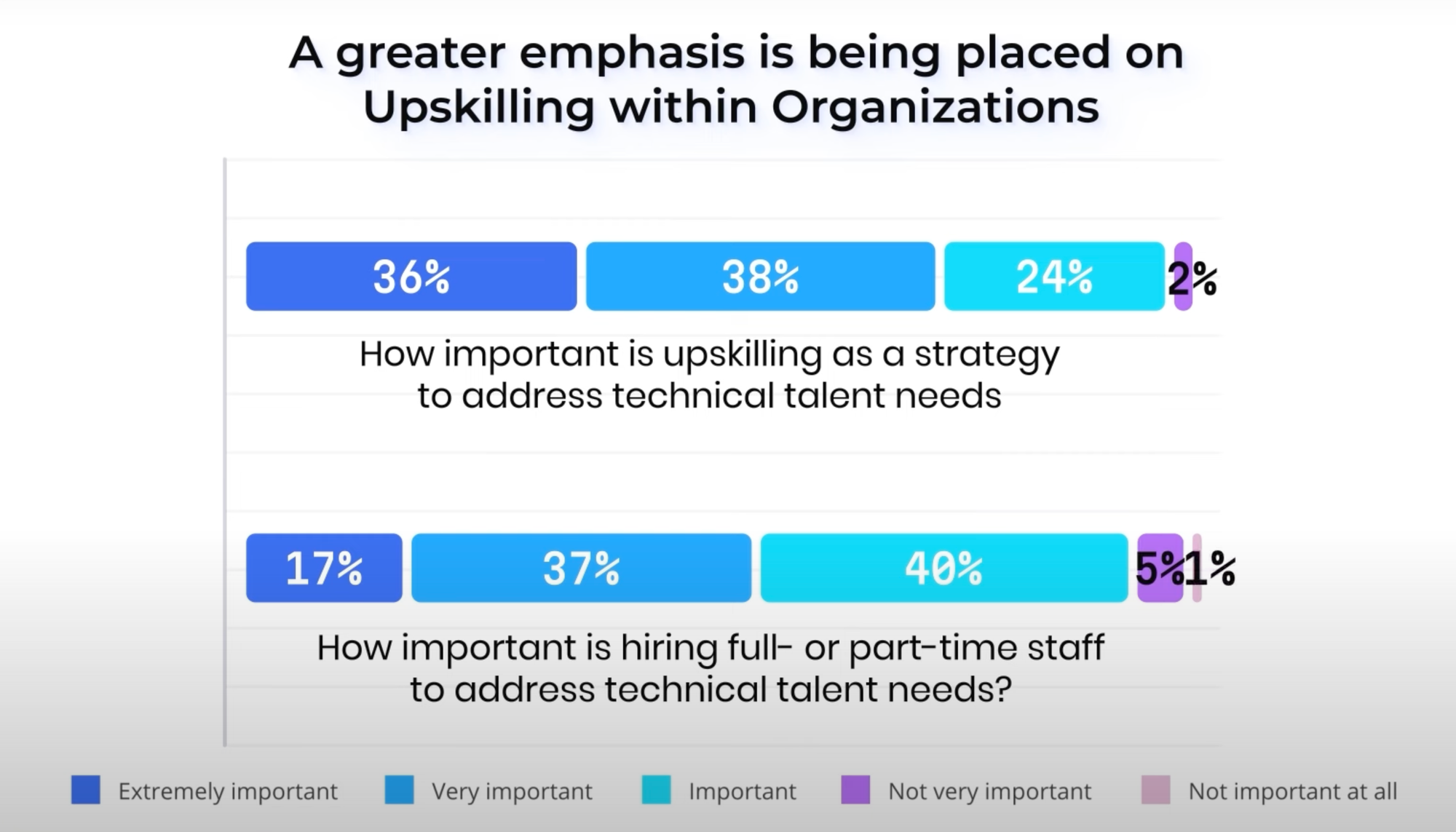
The report suggests that while 36% of organizations find upskilling “extremely important”, only 17% say the same for hiring based on degrees. This reveals a growing gap between what’s being taught in academia and what’s needed on the job. While a degree might offer a wide lens, it often lacks the specialized, focused skills required to operate the latest technologies.
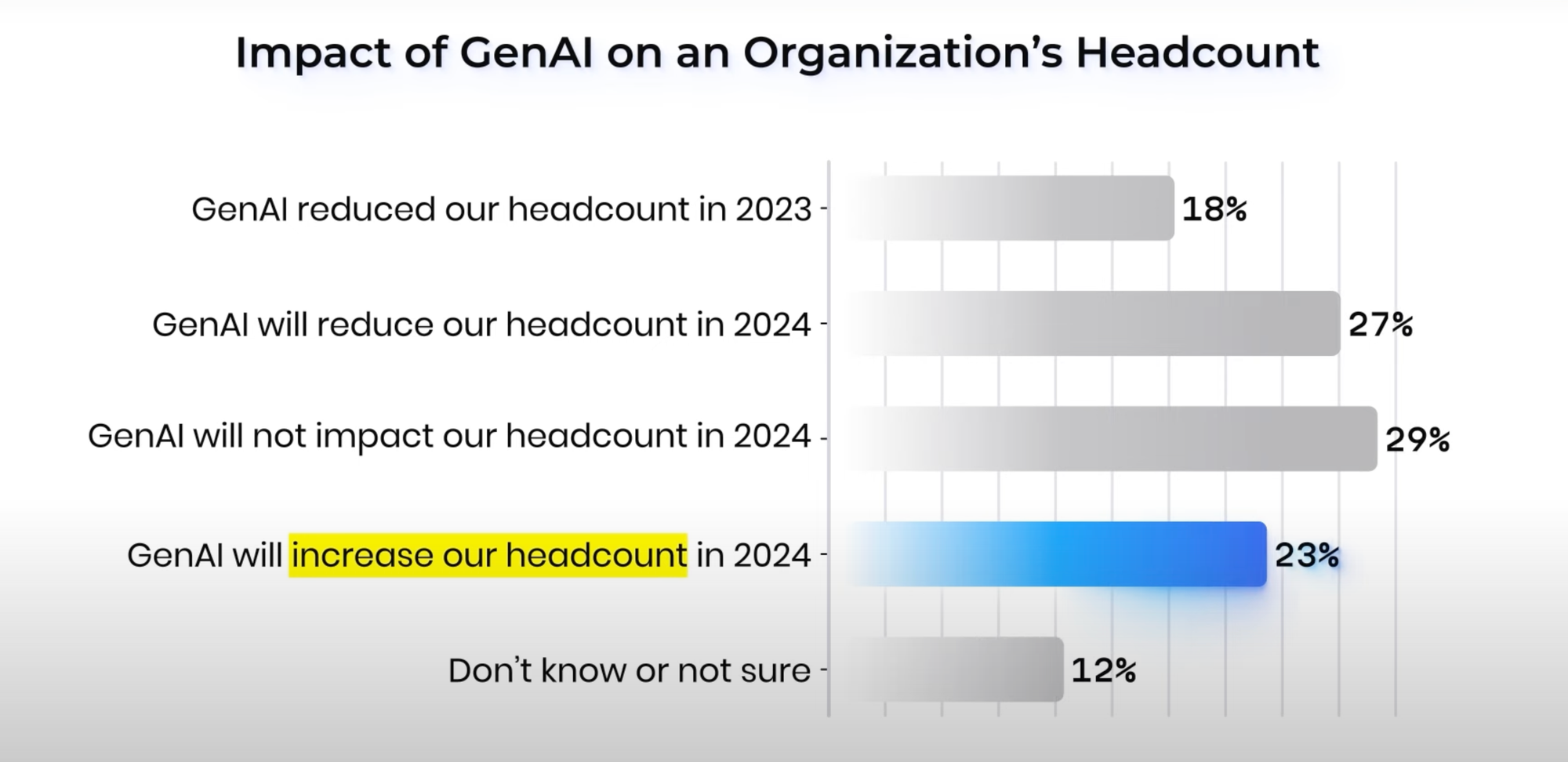
Consider the rise of Generative AI (GenAI). The report shows 23% of organizations plan to hire more staff for AI-related tasks, yet many degree programs have yet to fully incorporate GenAI into their curriculums. Certifications, on the other hand, can quickly integrate new technologies, making professionals more market-ready.
3. The Competitive Edge: Why Employers Lean on Certifications for Upskilling and Cross-Skilling
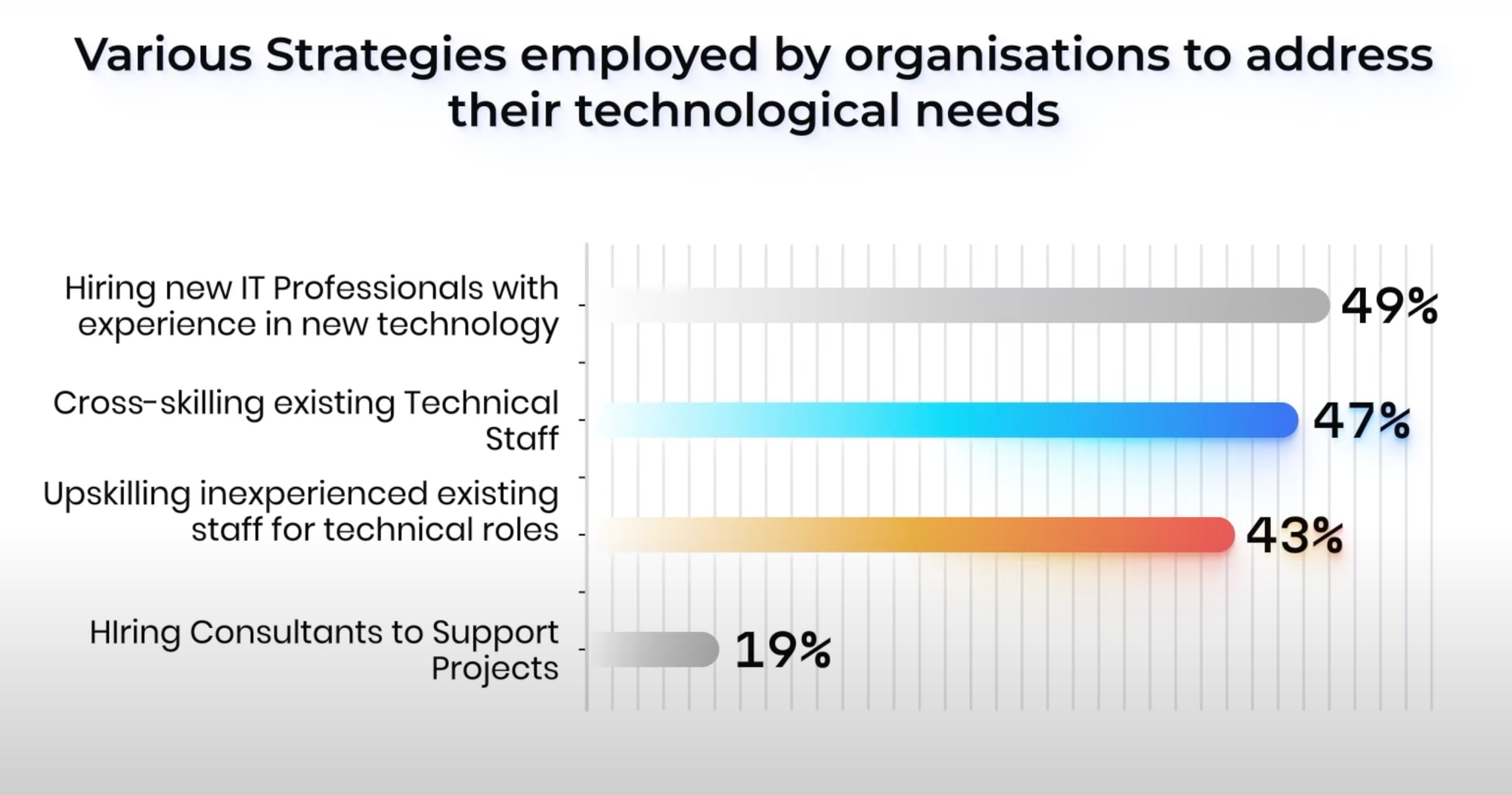
One of the clearest signals from the 2024 State of Tech Talent Report is that certifications are crucial for companies looking to remain agile. In a market where 47% of companies prioritize cross-skilling and 43% prioritize upskilling, the need for employees to continuously adapt has never been greater.
Upskilling refers to enhancing the current skill set of employees to stay relevant, while cross-skilling involves training them in new areas, allowing more flexible roles. Certifications, being focused, targeted, and regularly updated, are the ideal tools for this. They offer performance-based training, emphasizing the ability to apply knowledge to real-world problems—a feature that 39% of companies cite as a major advantage in maintaining continuous learning environments.
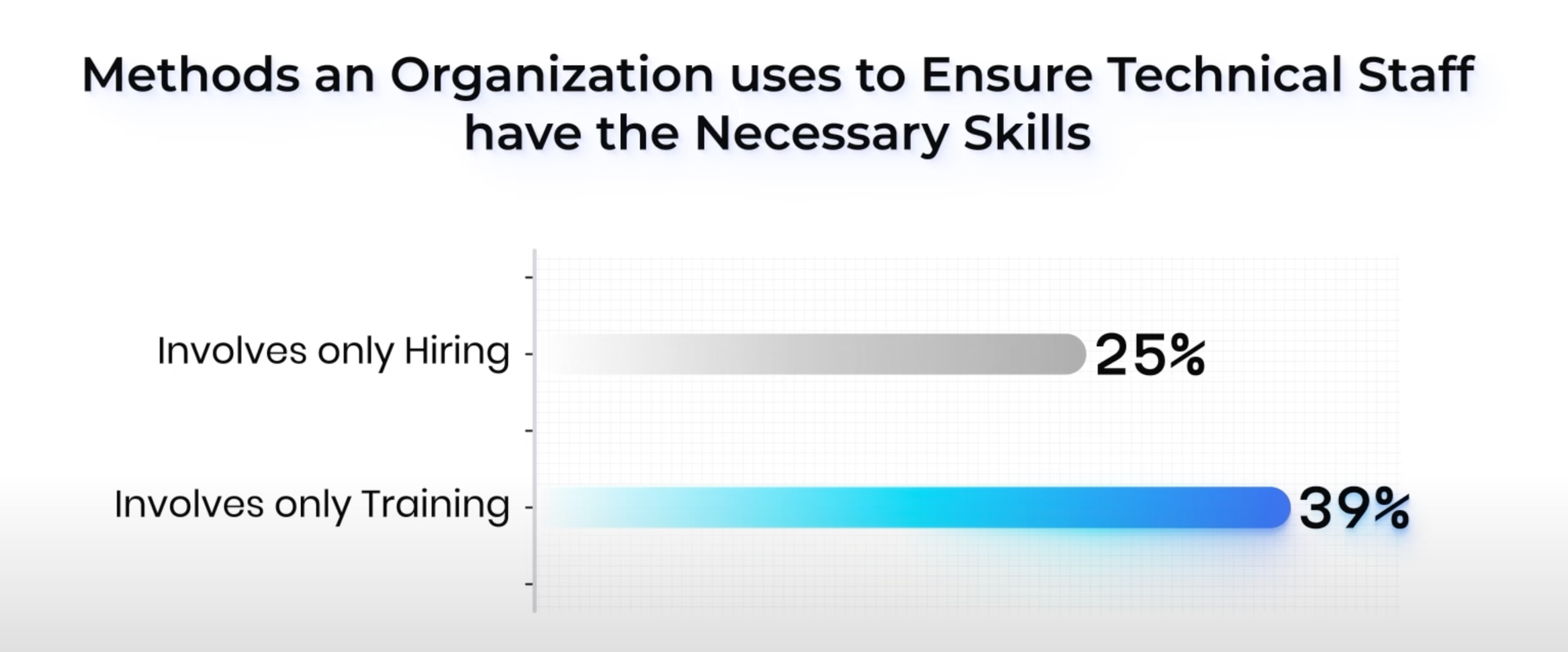
Companies no longer rely solely on hiring new employees with degrees; they’re investing in their current workforce. The 47% who focus on cross-skilling are equipping employees to take on roles in fast-growing areas like cybersecurity and AI/ML, where hands-on expertise is critical. This makes certifications a top strategy for filling skill gaps without the lengthy time and cost investments associated with traditional education.
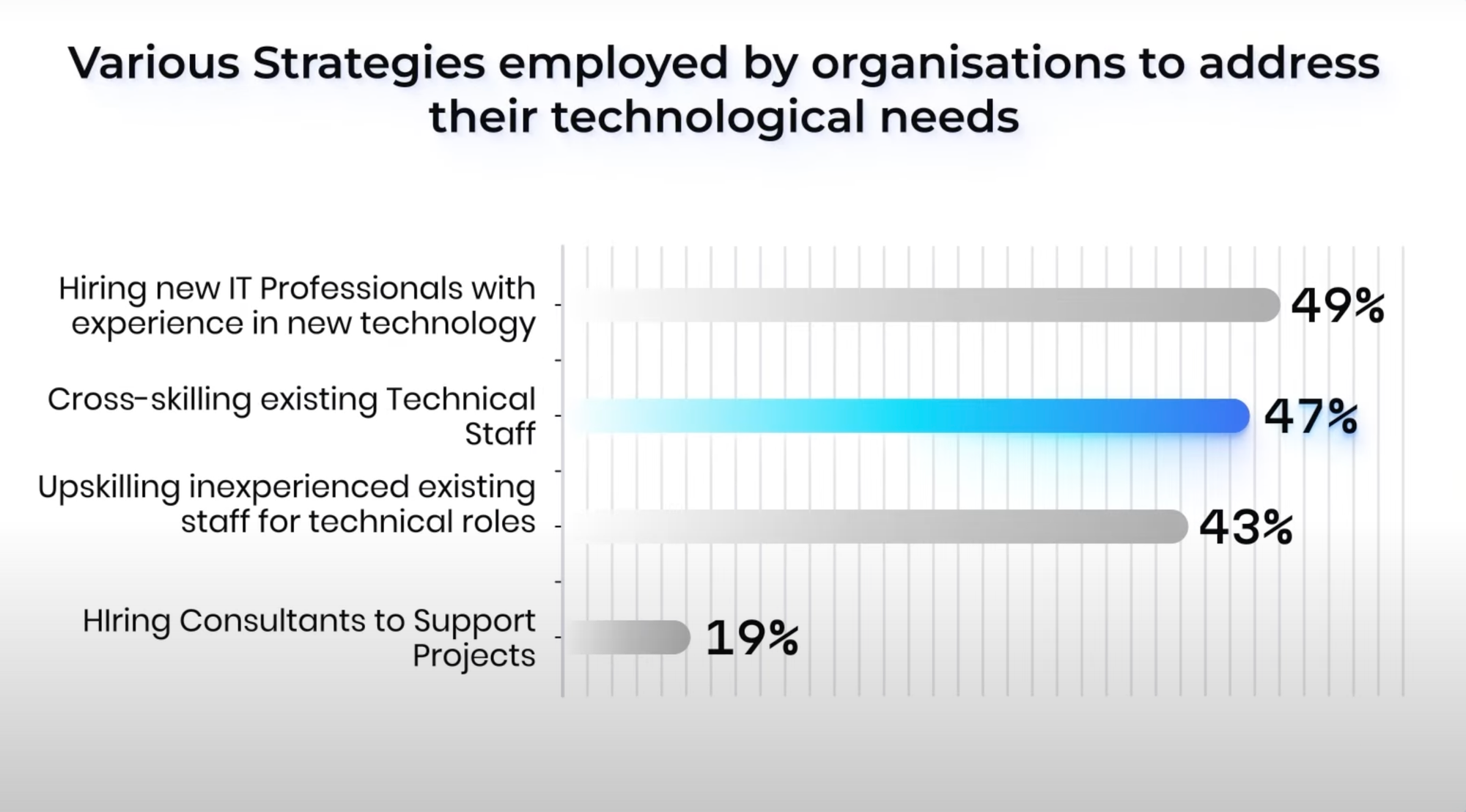
4. Time and Cost Efficiency: The Certification Advantage
While degrees have long been valued for the experience, exposure, and discipline they cultivate—along with the lasting connections that can shape one’s career—they are undeniably more expensive and time-consuming compared to certifications. Certifications, on the other hand, provide a faster and more cost-effective alternative for demonstrating relevant, up-to-date skills. According to the 2024 State of Tech Talent Report, certifications can be earned in a fraction of the time it takes to obtain a degree and at a significantly lower cost, making them an ideal option for tech professionals who want to stay current without the need to return to school.
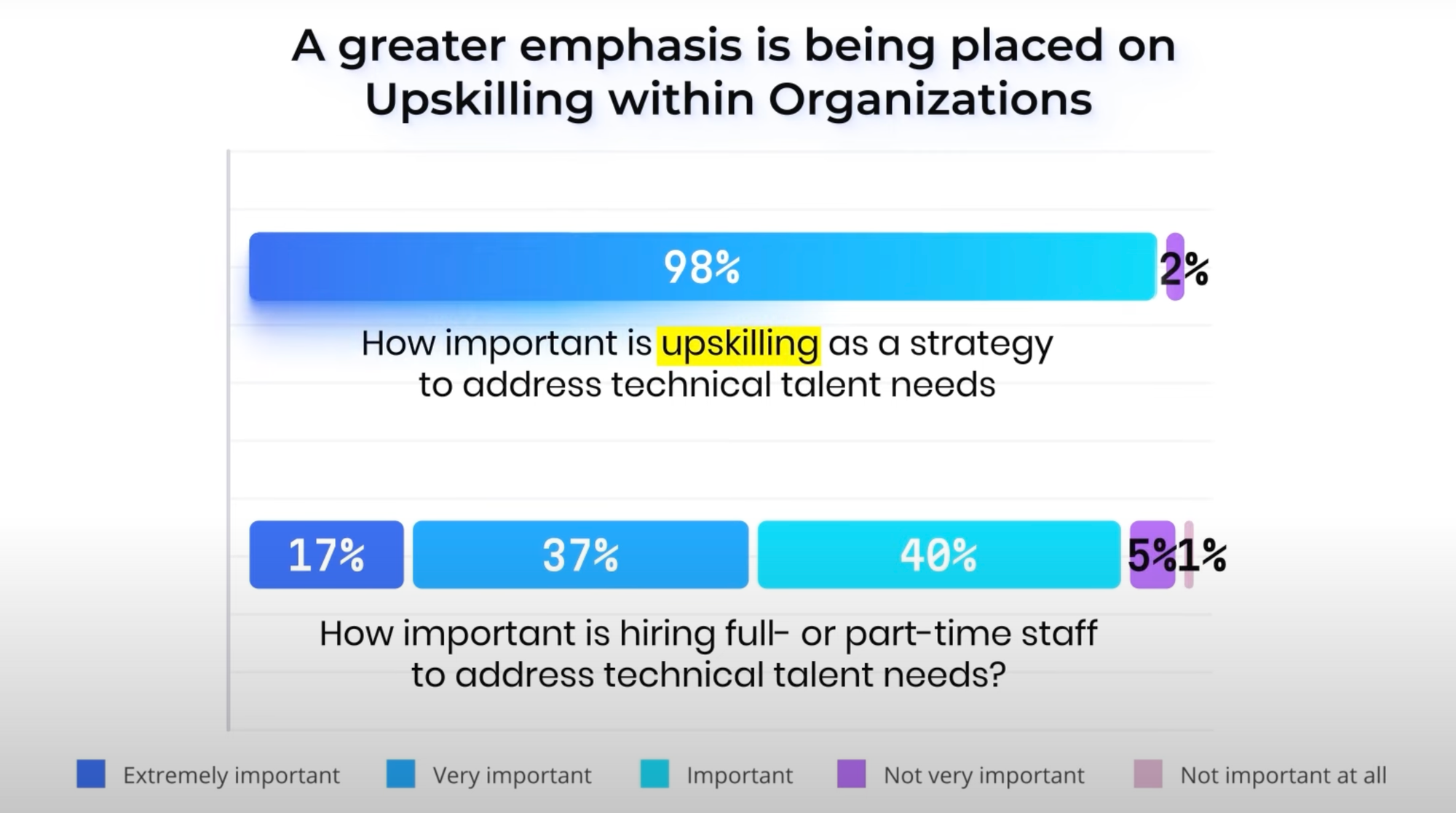
The report highlights that 98% of organizations consider upskilling essential to their success, and certifications provide a fast, affordable way to achieve this. Employers are increasingly recognizing that tech certifications offer an immediate return on investment, quickly closing skill gaps without the financial strain associated with hiring and onboarding.
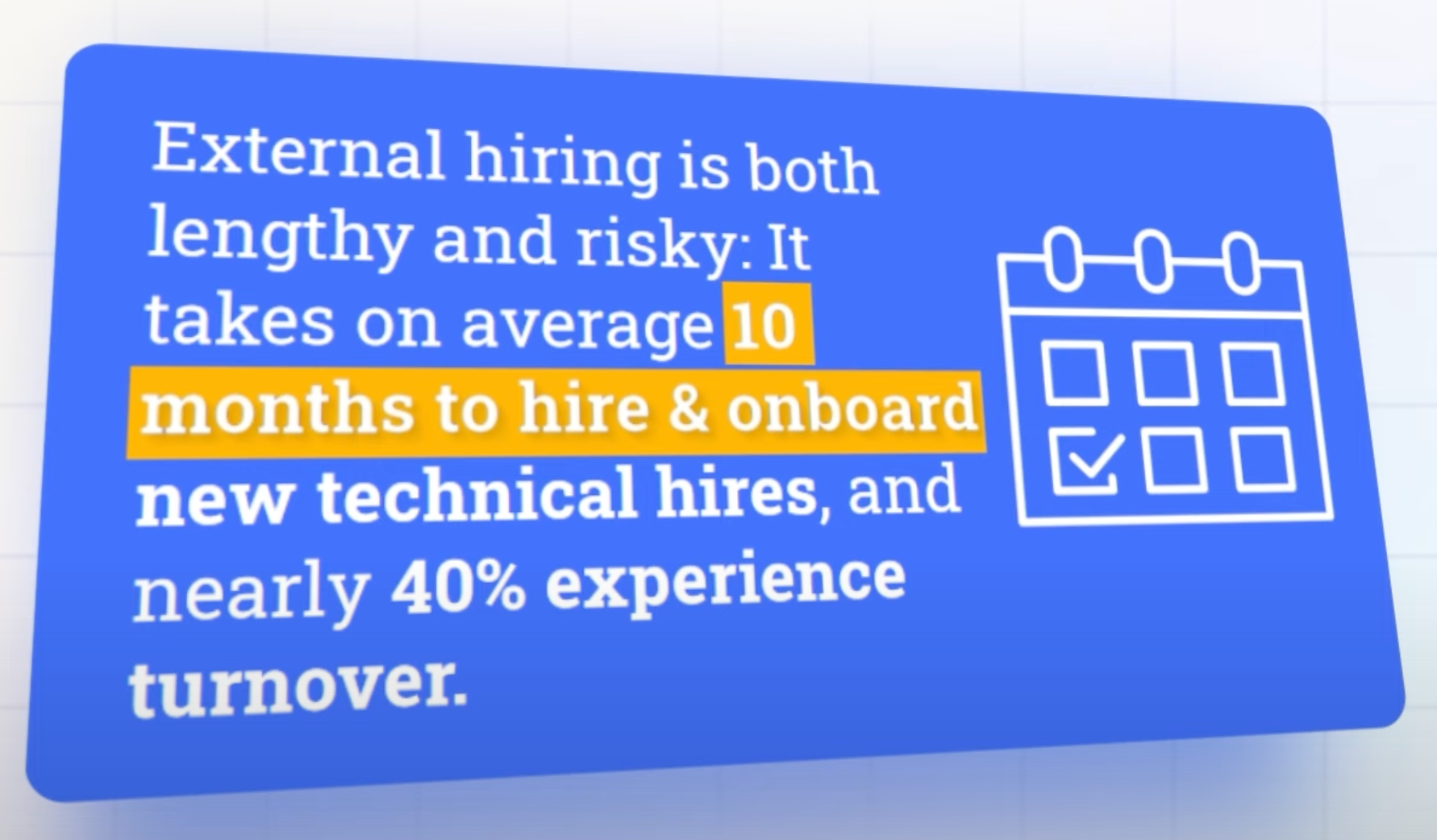
In today’s competitive market, speed is key. It takes an average of 10 months to hire and onboard a new employee in tech, with 40% of these hires leaving within the first few months. Certifications help mitigate this challenge by allowing employers to evaluate technical skills more effectively, reducing the risk of turnover and wasted resources.
5. Bridging the Gap: Certifications Help Solve the Talent Shortage
With the rapid pace of change, finding talent that can adapt quickly is critical. The report notes that 64% of tech leaders feel that candidates for IT positions lack essential skills or experience. This skills gap is particularly pronounced in areas like DevOps and AI, where companies need professionals who can immediately contribute to ongoing projects.

Certifications are a clear solution to this problem. Because they focus on up-to-date, practical knowledge, certifications give employers confidence that a candidate can perform the tasks required. For companies dealing with 38% turnover rates among new technical hires, having certified professionals helps ensure that new employees are ready to tackle real-world challenges from day one.
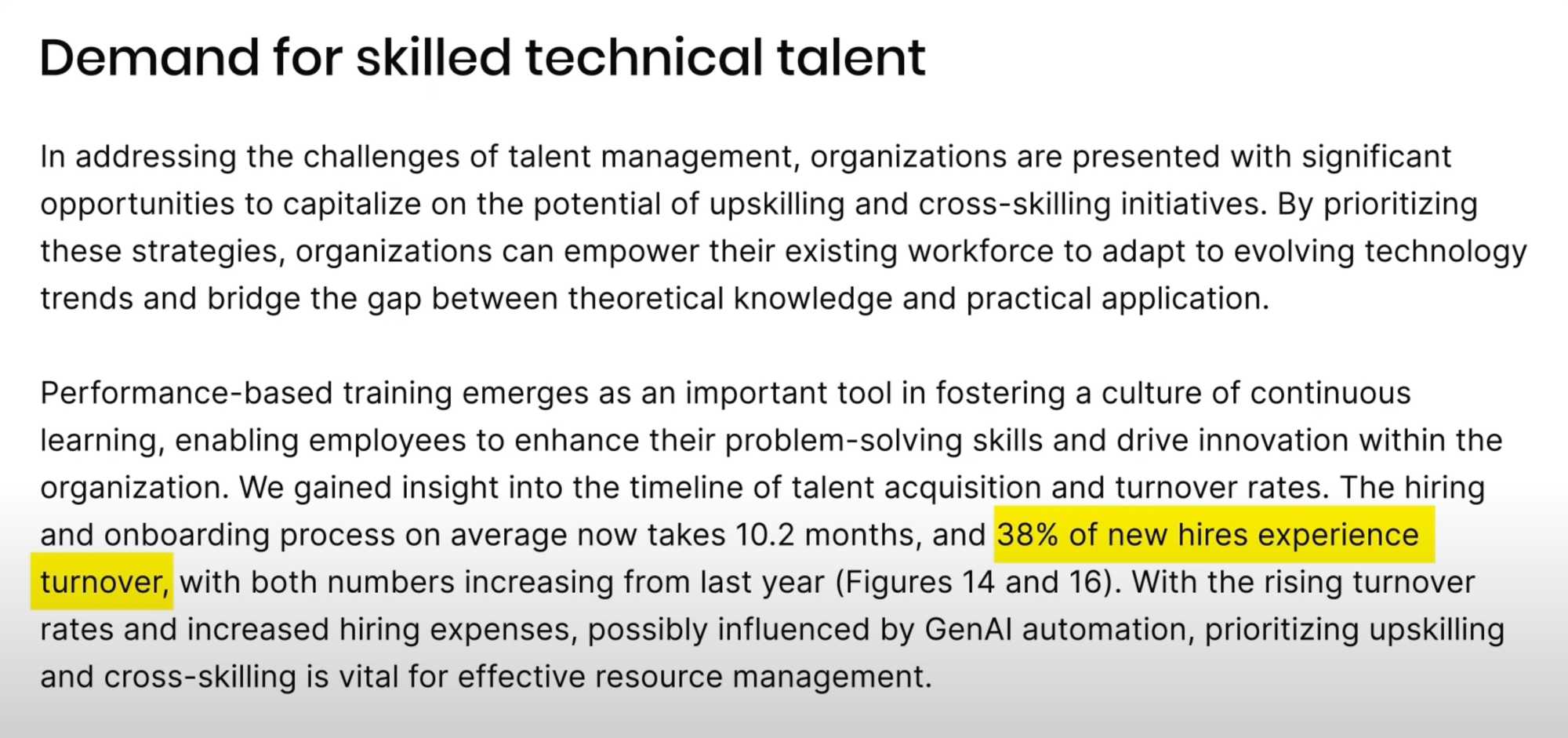
However, while certifications help bridge the immediate talent gap, they don’t provide the comprehensive skillset that a degree often delivers. Degrees cultivate a broader range of abilities, including communication, critical thinking, long-form writing, and cross-disciplinary knowledge, all of which are vital for creating well-rounded engineers. These skills enable engineers to speak the language of people and business, not just technology—crucial at senior levels where understanding customer needs and driving innovation are paramount. For roles in cloud services and DevOps, where 55% and 51% of companies, respectively, have dedicated headcount, certifications are valuable. But without addressing the broader skills gap that degrees traditionally fill, companies risk developing technically skilled yet narrowly focused engineers who may struggle to bring holistic, innovative solutions to the table.
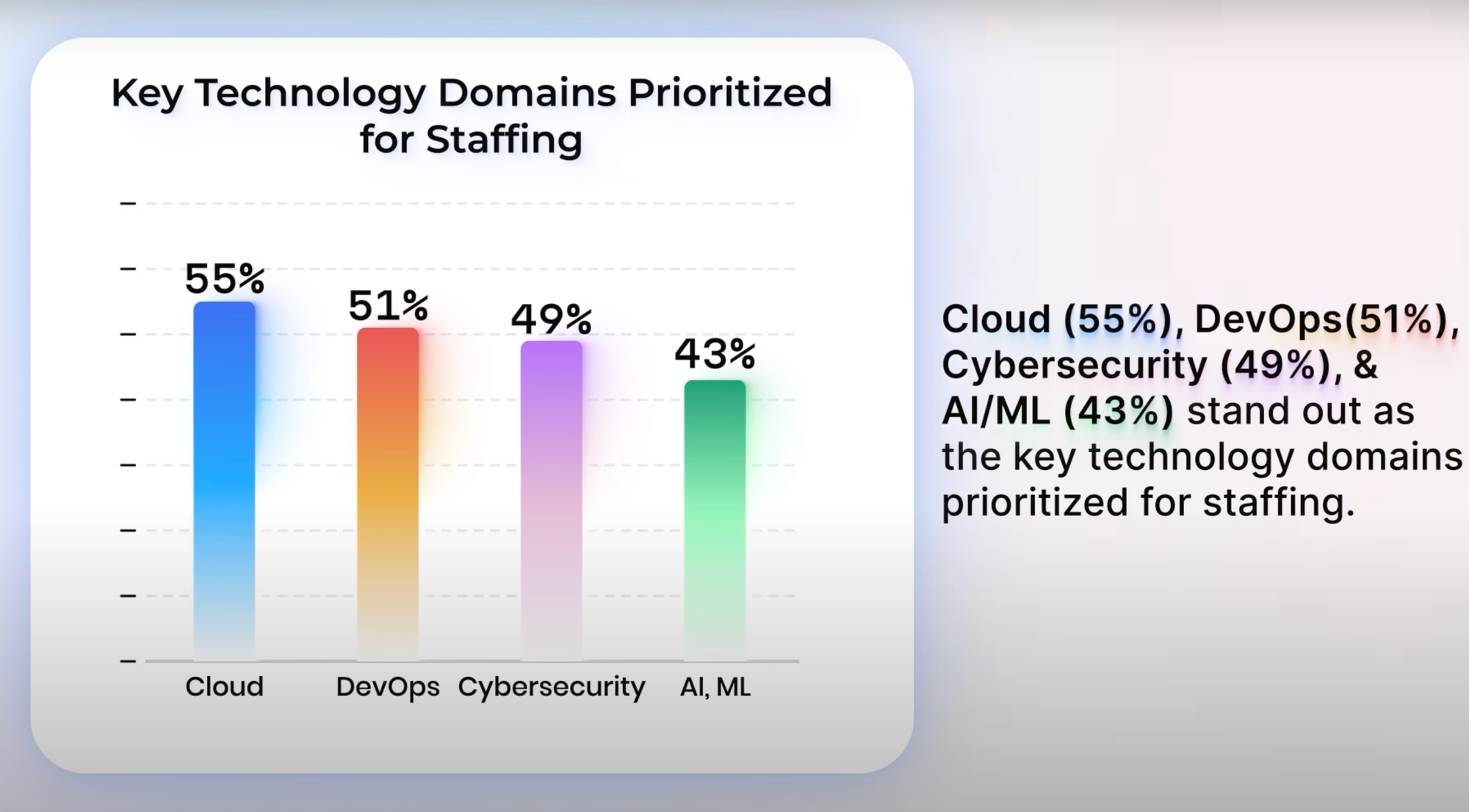
Ultimately, certifications solve the immediate skills shortage, particularly for entry-level roles, but organizations must be mindful of the need for ongoing development to avoid fostering engineers who can code but lack the well-rounded expertise to truly create impactful products.
6. Staying Relevant in a Rapidly Changing Industry
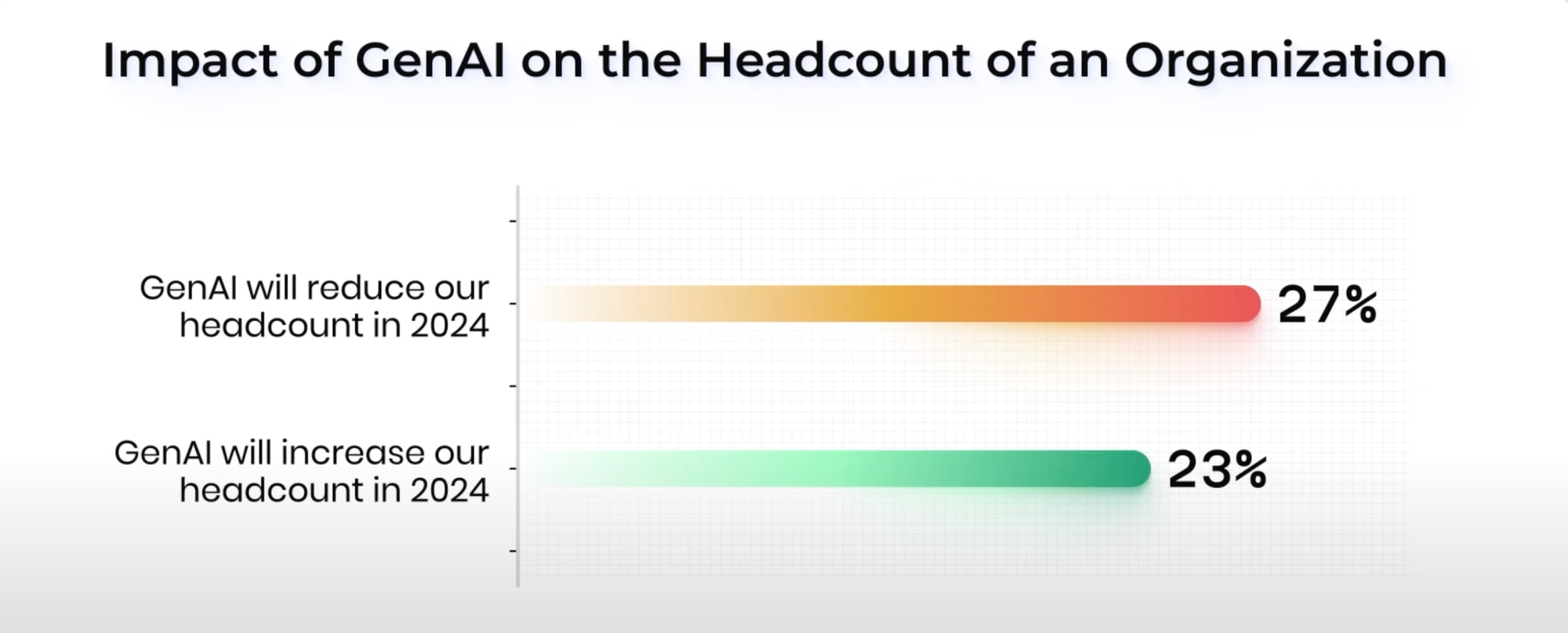
One of the biggest challenges for tech professionals is staying relevant. Technologies like cloud computing, cybersecurity, and AI/ML evolve rapidly, and the skills required to excel in these fields change constantly. The 2024 State of Tech Talent Report notes that 27% of companies plan to reduce headcount due to advancements in Generative AI, yet 23% will hire more to manage these same advancements.
This underscores the need for professionals to continuously update their skills, and certifications provide the quickest path to do so. Unlike degrees, which may take years to complete, certifications can be updated regularly to reflect the latest technologies, ensuring that tech professionals remain competitive in their fields.
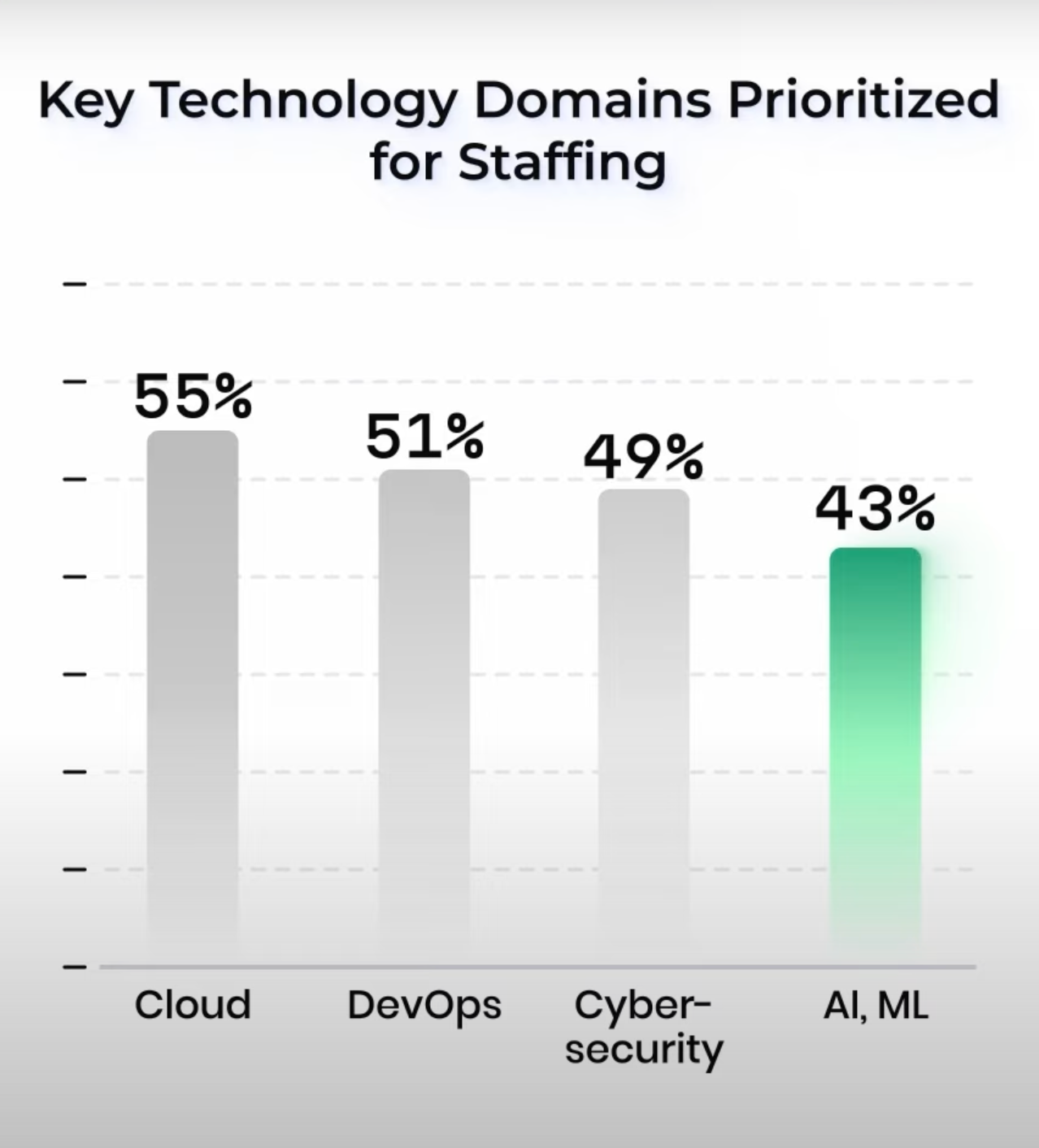
For instance, 43% of companies now prioritize AI/ML skills, and certifications in these domains are already incorporating the latest advancements, such as Generative AI. These developments are changing the job market significantly. In Software Engineering and DevOps, we’re seeing AI tools like code assistants (e.g., GitHub Copilot, Tabnine) enhance productivity by automating code suggestions and speeding up development cycles. Additionally, AI is transforming how we handle monitoring and security by providing anomaly detection in logs, real-time monitoring, and proactive code analysis to identify vulnerabilities before they impact production environments. As AI becomes more integrated into these processes, certifications that focus on practical, hands-on experience with these tools become invaluable for tech professionals looking to stay relevant in a fast-moving job market.
In contrast, degree programs often struggle to keep pace with such rapid changes, leaving graduates at a disadvantage in fields where technologies are evolving too quickly for traditional curricula to adapt.
7. The Balanced View: Do Certifications Truly Outshine Degrees?
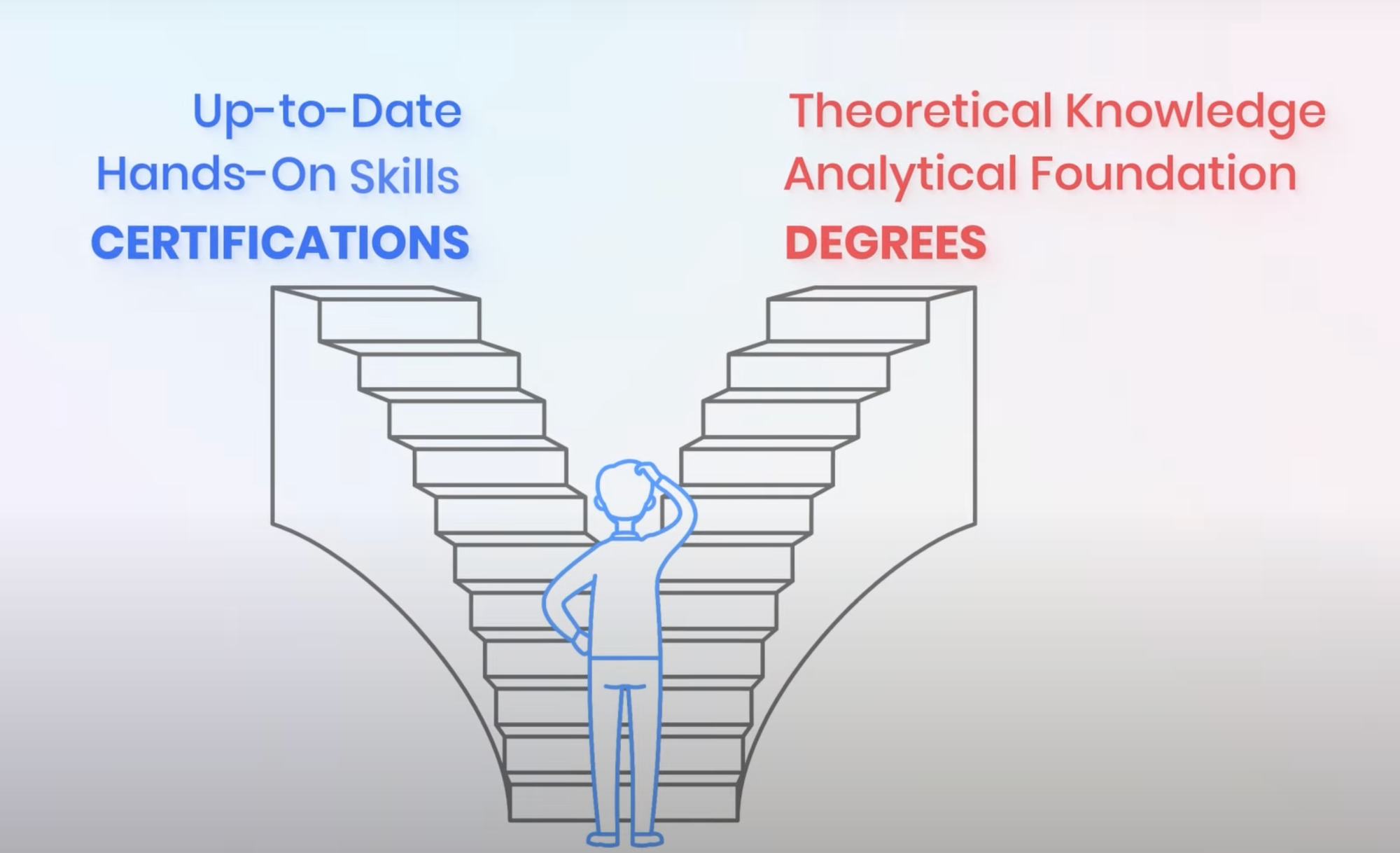
So, are certifications really outshining degrees? The data suggests that certifications offer clear advantages, particularly in terms of time, cost, and relevance. However, degrees still hold significant value, especially in roles that require deep theoretical knowledge, such as data science or research positions. Degrees provide a broad, foundational understanding of technology, along with critical thinking skills that are harder to measure in certification exams. They also build a strong framework for problem-solving and long-term decision-making, which is crucial in more complex or academic fields.
In an ideal world, tech professionals would leverage both paths. A degree offers the theoretical knowledge and analytical foundation necessary for tackling intricate challenges, while certifications provide the up-to-date, hands-on skills needed to stay competitive in a fast-evolving industry. Both together create a well-rounded professional capable of thriving in both practical and highly specialized areas of technology.
Conclusion: The Future is Certified—But Don’t Count Degrees Out Just Yet
The 2024 State of Tech Talent Report makes it clear that certifications are rapidly becoming the go-to option for tech professionals seeking relevant, job-ready skills. With the ability to update skills quickly and affordably, certifications address the immediate needs of both companies and individuals, particularly in fast-moving fields like cloud computing, DevOps, and AI. For many professionals, certifications offer a practical and efficient path to staying competitive in a constantly evolving industry.
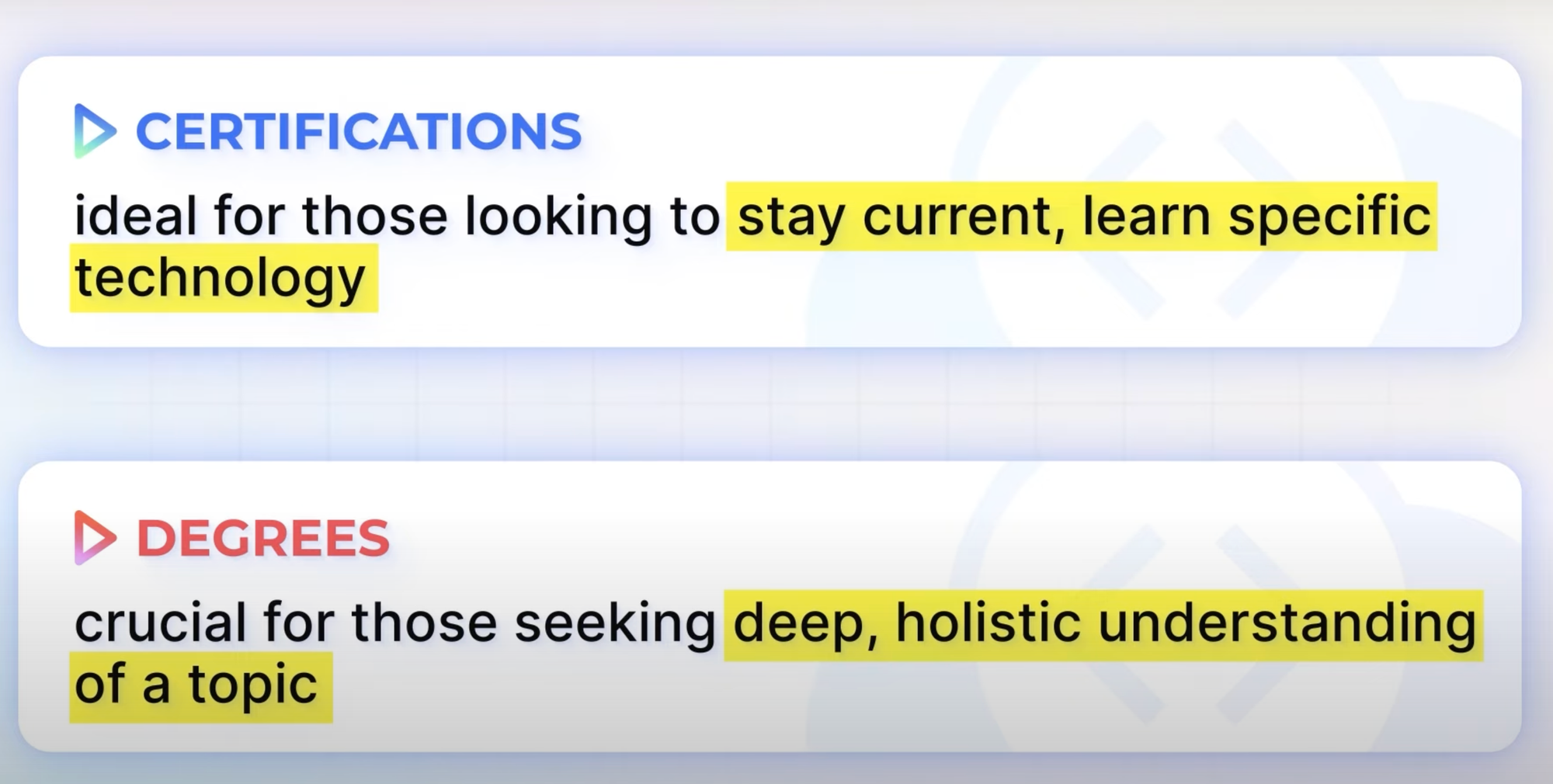
However, this doesn’t mean degrees are becoming obsolete. Degrees, such as a Bachelor's in Computer Science, provide a broad, deep foundation that equips professionals with the critical thinking and theoretical knowledge necessary to excel in more complex or strategic roles. While certifications are ideal for those looking to stay current with specific technologies, degrees remain crucial for those who aim to develop a holistic understanding of technology and its applications across different domains. The value of a degree shines in roles that require deep expertise, long-term vision, and interdisciplinary thinking—qualities that are harder to develop through certifications alone.
So when should you prioritize one over the other? Certifications are the best choice when you need to quickly gain practical, up-to-date skills that can be immediately applied in technical roles or when transitioning into new technologies. They're also ideal for professionals already working in the field who need to stay relevant without the time and financial commitment of going back to school. On the other hand, degrees are more valuable for those pursuing careers that demand a deep, theoretical foundation—such as data science, research, or senior leadership positions—or for those seeking to broaden their expertise beyond immediate technical needs.
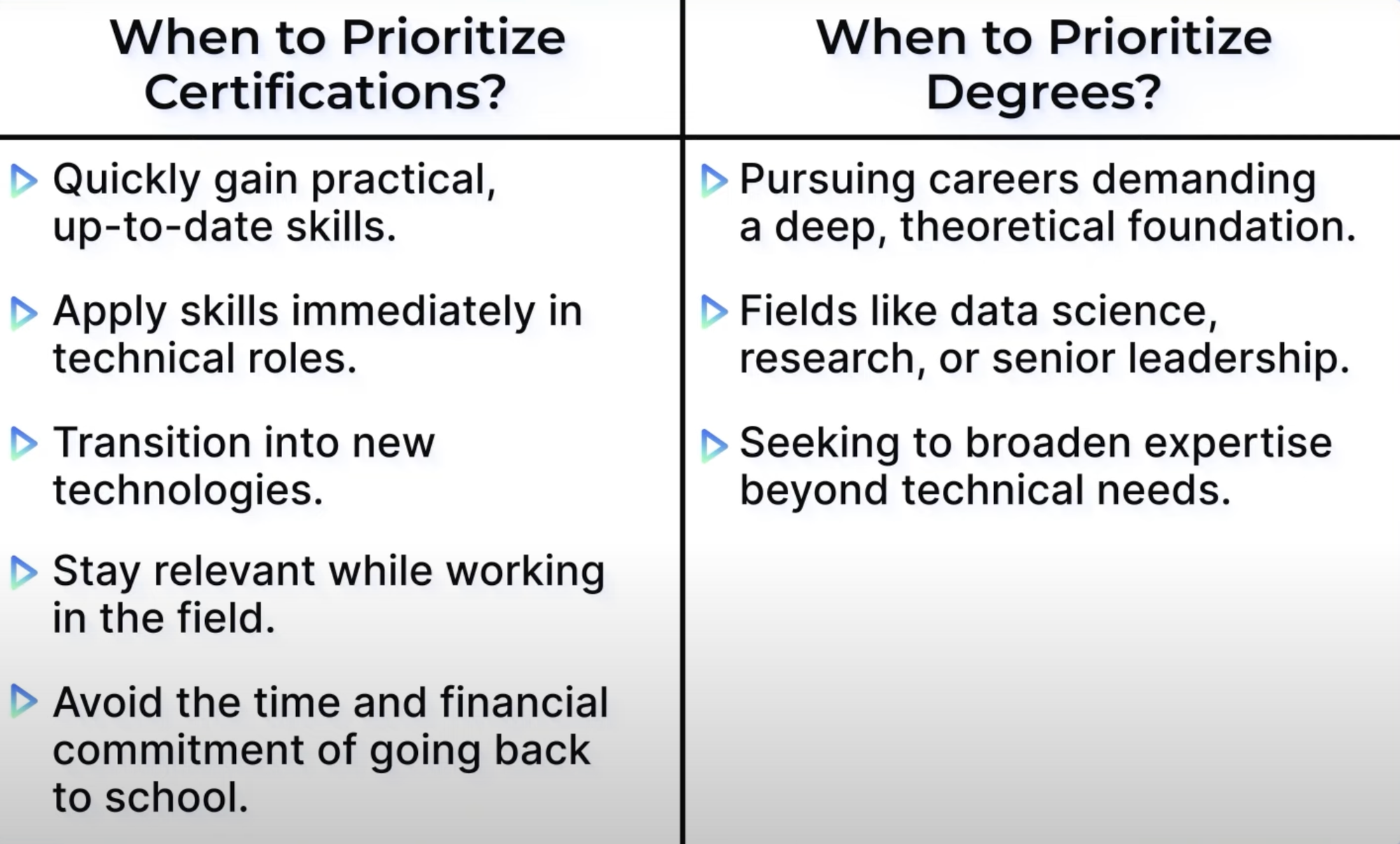
Looking ahead, it’s also worth considering that the tech landscape is evolving. As AI and automation tools continue to advance, many of the skills traditionally acquired through certifications—like coding and infrastructure management—may become less critical, with AI models taking over these tasks. In the long term, roles requiring deep theoretical understanding and creative problem-solving are likely to dominate. This could shift the balance back toward degrees, particularly for those who want to future-proof their careers.

In conclusion, certifications are indispensable for staying relevant in today’s fast-moving tech world, but degrees still offer a unique value that can’t be overlooked, especially for roles that require strategic thinking, innovation, and long-term expertise. The key is knowing when to leverage each to build a well-rounded, future-proof career.
A degree builds your foundation, while certifications keep you current.
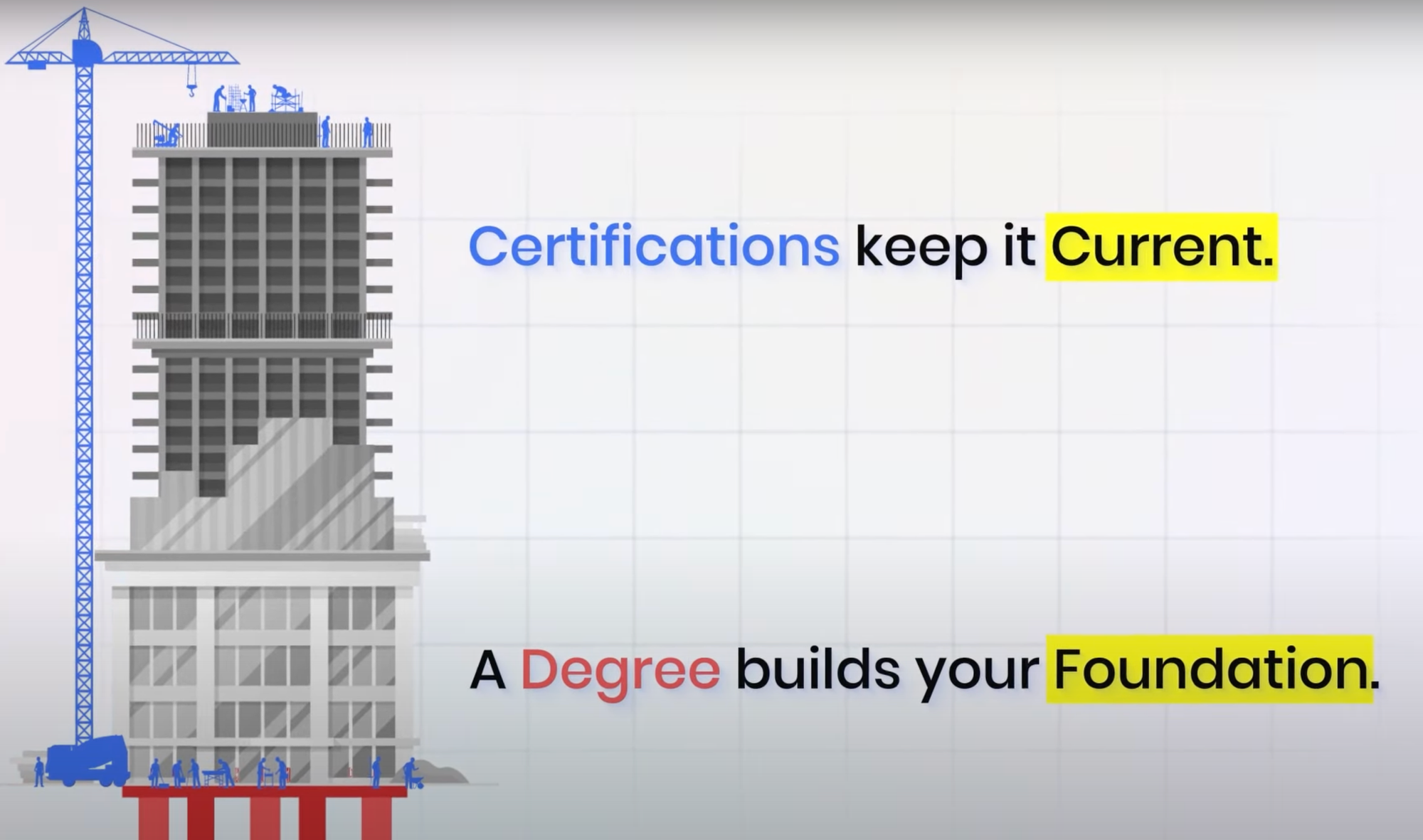
Frequently Asked Questions (FAQ)
1. What’s the difference between tech certifications and degrees?
Tech certifications focus on specific, job-ready skills, while degrees offer a broader foundation in technology, including critical thinking and problem-solving over several years.
2. Are certifications necessary for a career in tech?
Certifications aren’t always required but are essential for staying relevant and demonstrating up-to-date skills in fast-growing fields like cloud computing and DevOps.
3. Do employers prefer certifications over degrees in 2024?
According to the 2024 State of Tech Talent Report by The Linux Foundation, many employers prioritize certifications for tech roles requiring immediate expertise. However, degrees still hold value for positions that need deep theoretical knowledge and research skills.
4. How long does it take to earn a tech certification?
Most tech certifications can be completed in a few weeks or months, offering a quicker route than degrees, which take several years.
5. Is it better to get a degree or multiple certifications in cloud computing?
It depends on your goals. Degrees provide a broad foundation, while multiple certifications in cloud computing help you stay specialized and up-to-date with current tools.
6. How can I balance both degrees and certifications for career growth?
A degree builds your foundation, while certifications keep you current. Balancing both gives you the broad knowledge and practical skills needed for long-term success.






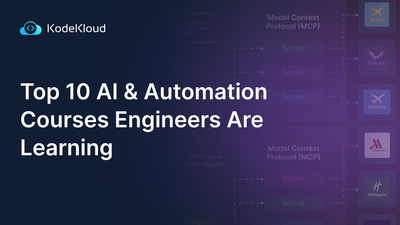







Discussion